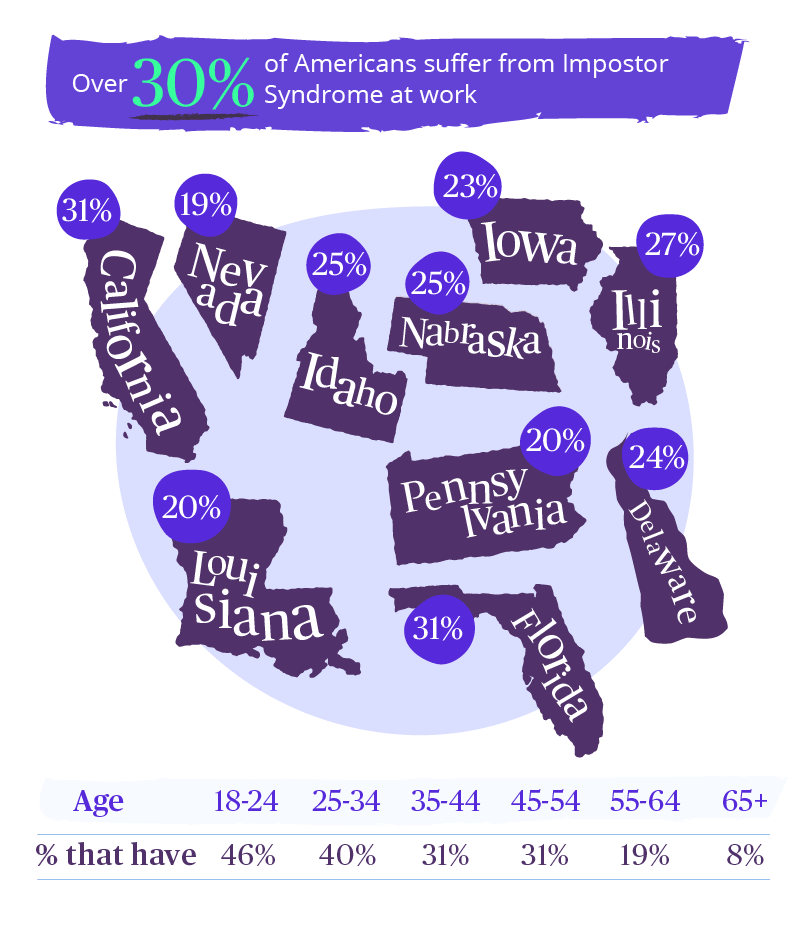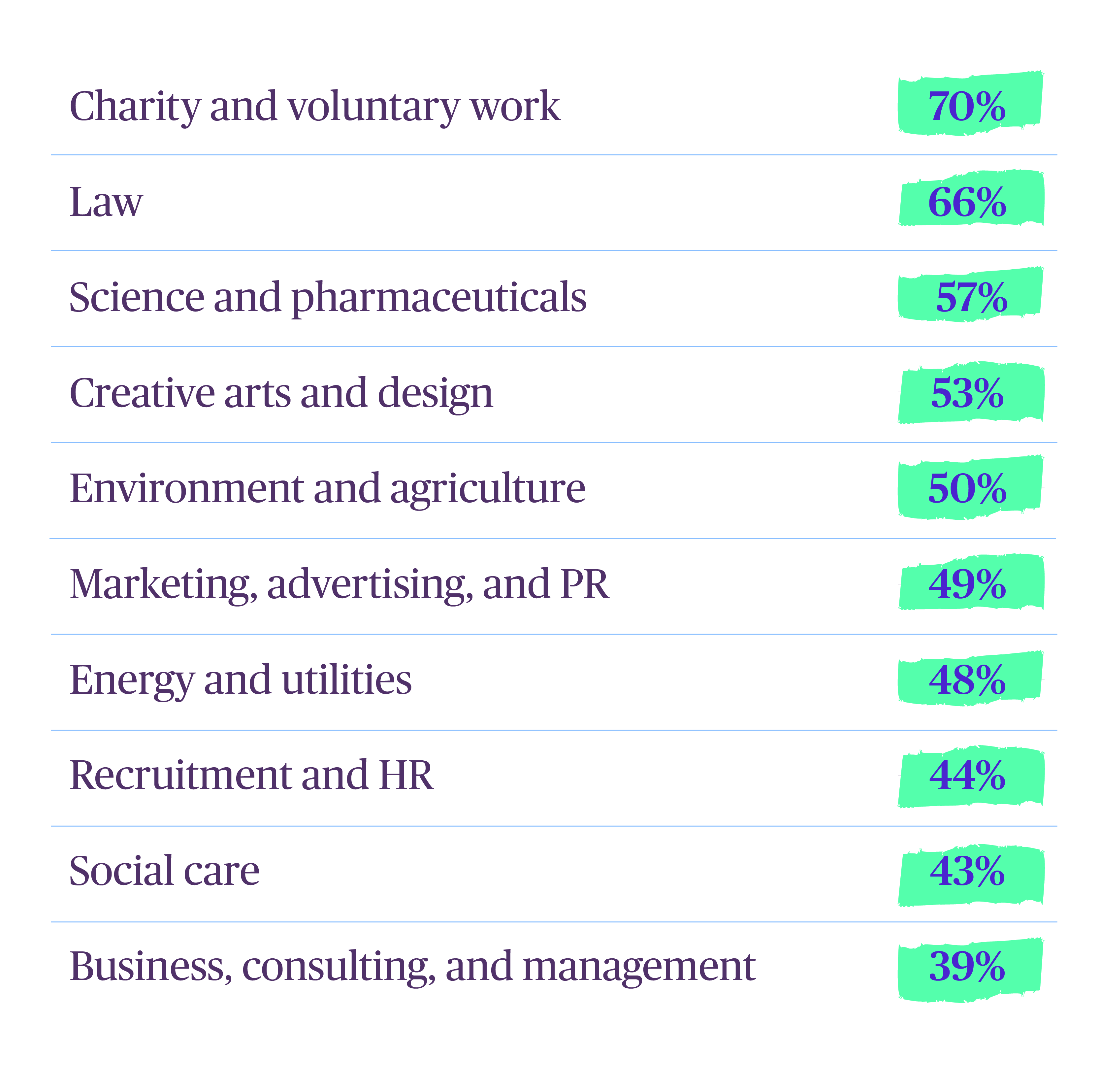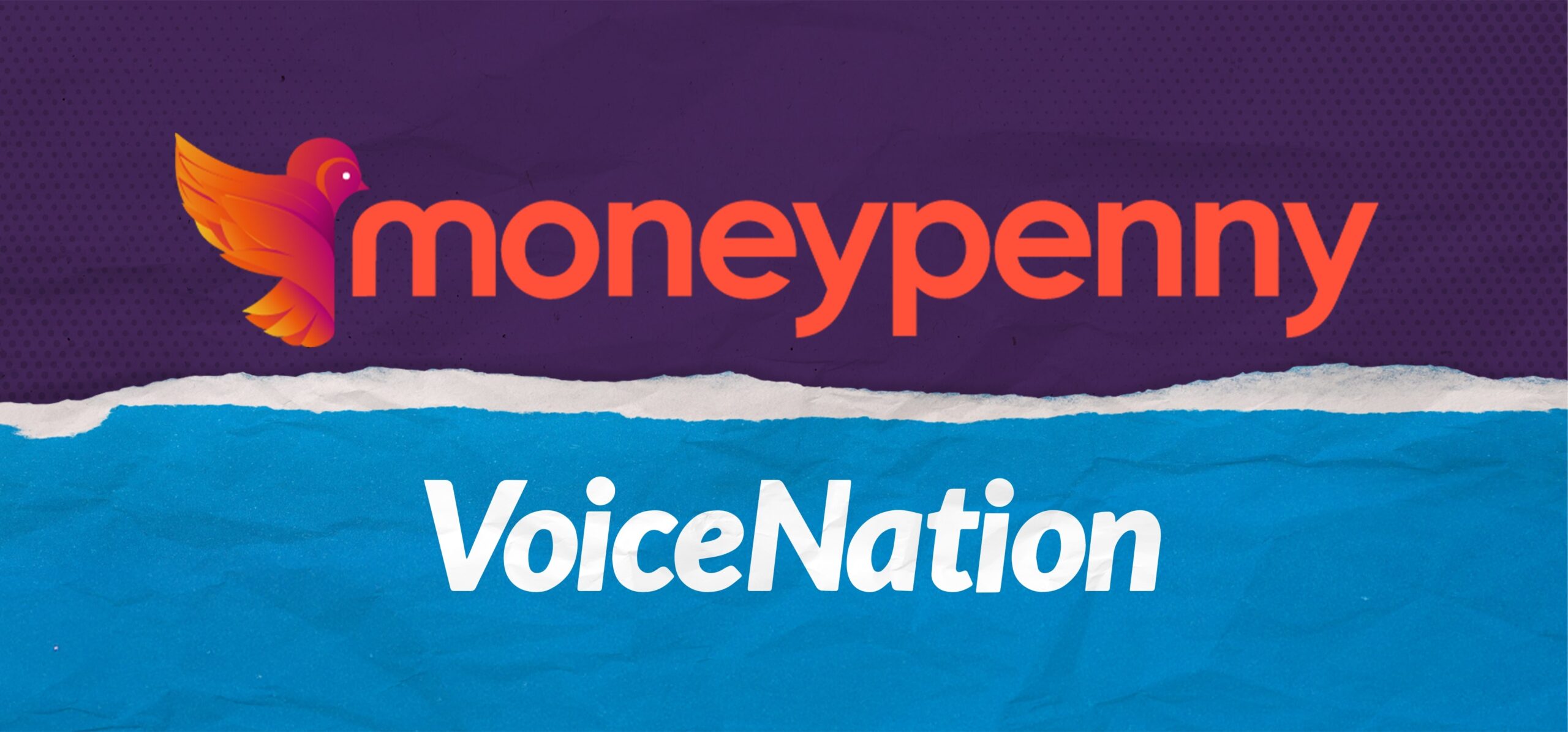Work is a key part of our everyday lives; it’s where we spend most of our time. And yet, a lot of us don’t feel as confident in our roles as we should, or as people realize.
With imposter syndrome becoming more of a talked about topic, and workplace mediums changing since the pandemic, we wanted to delve a little deeper to find out how employees really feel at work. Plus, we wanted to assess which areas in the U.S. are most and least confident.
So, read on to find out about workers and their attitudes towards their roles, and who they feel most comfortable talking to.
31% of people in Florida don’t feel fully confident in their job
We surveyed Americans in different states to find out which locations have the most and least confident workers. And the results are in; it seems those working in Florida are least likely to feel confident in their current roles (31%), with Illinois workers not too far behind (27%).
California, Idaho and Nebraska come next, with 25% of people in each of these states claiming they don’t feel as confident in their job as they’d like. Next up, we have Iowa (23%), followed by Pennsylvania (20%), Louisiana (20%).
Meanwhile, employees in Nevada as among the most confident; although not completely, with 19% of people claiming struggling with self-assurance.

Employee confidence amongst men and women
Our research found that women appear to suffer more than men when it comes to confidence, with 14% saying that they don’t feel confident at work – which is 3% higher than men (11%).
In terms of Impostor Syndrome, women (35%) suffered more than men (30%) from the sense of self-doubt.
21% of men would rather speak to fellow employees than a manager
In the workplace, it appears that men are more likely than women to approach their co-workers than their manager (21% vs 13%), which comes down to how confident they feel in themselves. Whereas women (40%) are likelier to see their manager as more of a friend than men (35%), which potentially makes approaching conversations about tasks and problems easier.
It seems men (35%) suffer from imposter syndrome more than women (30%) in the workplace, too, suggesting that we may start to see more confident females in senior positions.
41% of VPs have suffered from imposter syndrome
Obviously, there are different positions of seniority in the workplace, so it’s important to recognize the different confidence levels among each. However, 41% of presidents/VPs have admitted to suffering from imposter syndrome, followed by senior managers (37%), mid-management (39%) and lower management (34%).
18–24-year-olds suffer from imposter syndrome the most
To determine what age employees are most likely to suffer from imposter syndrome, we surveyed different age groups across a range of American industries.
Taking top spot, 18-24s are by far the likeliest, with 46% of U.S. workers in this age group saying they’ve felt imposter syndrome at work. Supporting this, 16% of the same age group admit to not feeling fully confident at work, perhaps because they are building their experience in their respective industry.
Furthermore, 15% of young people admit to not having a good relationship with their boss or manager, the highest of all age groups, which can ultimately affect confidence at work.
Another interesting take: 12% of this age group said working from home meant they felt less confident at work. So, maybe flexible working is a hindrance for younger employees, which then determines how comfortable they feel in themselves within the workplace?
Which workplaces have the least confident employees?
When it comes to the workplace, the least confident employees come from science and pharmaceutical companies (28.6%), with marketing, advertising and PR following (25.6%).
Other sectors where people admit to not feeling fully confident include:
- Social care (20.0%)
- Transport and logistics (18%)
- Energy and utilities (18%)
- Creative arts and design (18%)
- Law (17%)
- Teacher training and education (17%)
- Sales (16%)
- Engineering and manufacturing (14%)
- Leisure, sport, and tourism (14%)
- Public services and administration (13%)
- Law enforcement and security (12%)
- Healthcare (11%)
- Hospitality and events management (10%).
Charity and voluntary workers suffer the most from imposter syndrome

Imposter syndrome is more prevalent than you may think, and we found that charity and voluntary work is where employees suffer the most. In fact, 70% of people admit to experiencing this feeling it in this sector.
Other industries suffering from imposter syndrome are:
- Charity & Volunteer work (70%)
- Law (66%)
- Science and pharmaceuticals (57%)
- Creative arts and design (53%)
- Environment and agriculture (50%)
- Marketing, advertising, and PR (49%)
- Energy and utilities (48%)
- Recruitment and HR (44%)
- Social care (43%)
- Business, consulting, and management (39%)
- Public services and administration (39%)
- Telecommunication services (36%)
- Healthcare (34%)
- Hospitality and events management (33%)
- Information technology (33%).
It’s interesting to learn how industry, age, and location impacts confidence levels in the workplace, and how working from home can affect this. For further insights on findings just like these, including how many Americans are in their dream career and how often people lie on their resume, visit our blog.


















